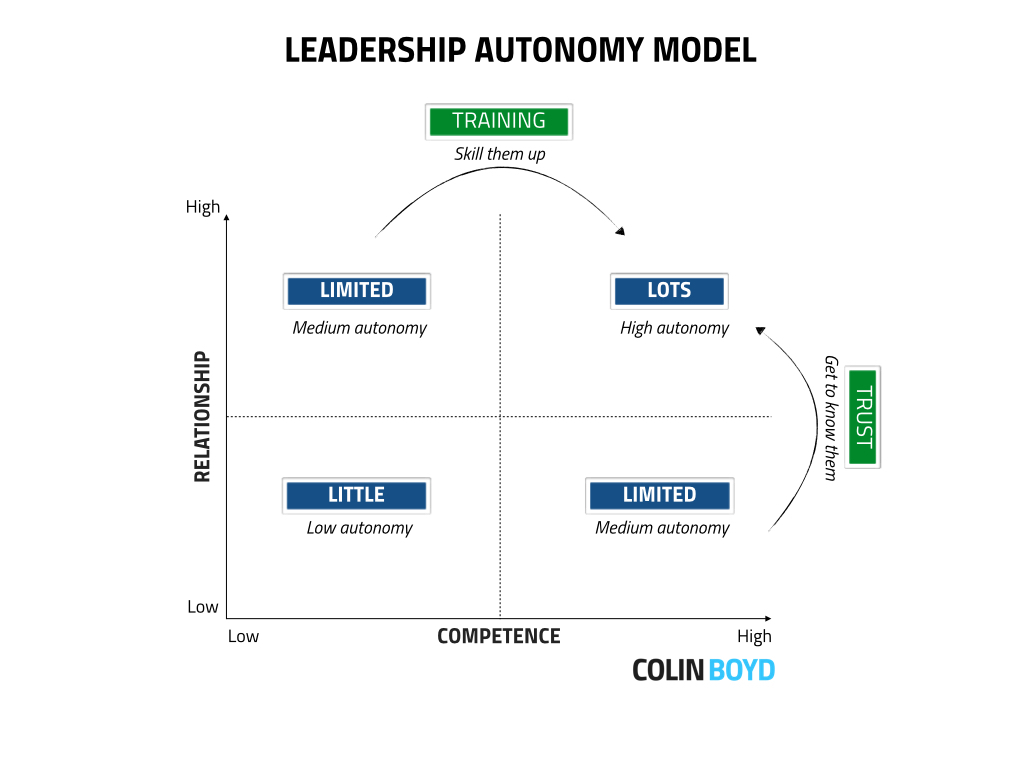Today I want to show you the #1 motivating factor for people in your teams. It will help you get your team engaged and re-inspired.
Just the other day, I was running a leadership workshop for a large organisation, and we were talking how to engage employees more effectively.
In fact, there are five big factors that engage employees. But what I want to share with you what I think is the #1 motivating factor: Autonomy.
Autonomy is kind of a unique idea. I don’t know about you but I know for me when I’m running my business with employees or when I’m coaching people, I’m always wondering how much autonomy should I give them. You might want to give some a lot of autonomy, and others only a little.
To better understand the autonomy equation look at it this way…
I think there are two continuums that you need to be aware of to help you decide the level of autonomy to give people. Let me share them with you.
- Competence — someone’s skill set, knowing how well he or she does the job.
- Relationship —how long you have known the person, and how much you trust them. If you trust someone more, obviously you’re going to give him or her more autonomy.
What I want to do right now is put these two ideas onto a map. You can see the map below.

The first continuum is competence. If you have someone with low competence and low relationship, you’re going to give them very LITTLE autonomy. You’re not going to give them much autonomy in terms of giving them projects and letting them do whatever they want to do, or let them run their own show.
If you’ve got someone who is high relationship but low competence, I think you should give them LIMITED autonomy. There will be little bit of autonomy but not full autonomy, because you know that they will come back to you and ask if they have a problem.
On the other side of the spectrum, if you have someone who has high competence but you’ve got low relationship with them, then I think you should give them LIMITED autonomy as well. They’re good at their skill but you don’t know their character yet. This might take a short period to trust them.
Now, if you have high relationship with them and they have high competence — you’re going to give them LOTS of autonomy.
So really there are only three choices out of the four: little autonomy, limited autonomy and lots of autonomy.
That will help you to make a decision on what level of autonomy you might want to give someone. Research suggests that autonomy is such a motivating factor for people and teams.
If this has been valuable, please like it, tweet it, or share it with your friends. If you got this in an email, please pass it on to someone if you think it will be helpful for them.
Please comment below: What’s been most valuable from our conversation today?
Always remember: Colin Boyd, the place to go to learn how to influence, make an impact and to live inspired.


